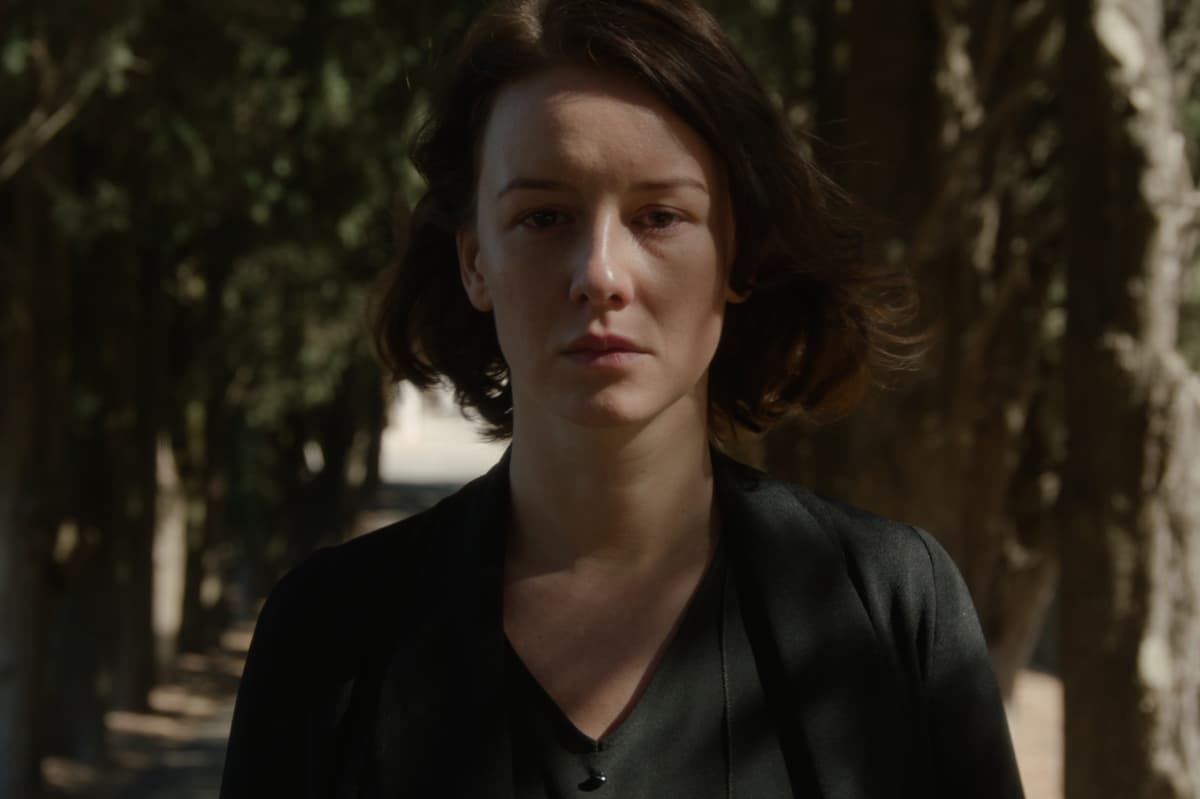Director Michael Winterbottom (The Wedding Guest, The Trip series) centers his “based on a true story” film on Shoshana Borochov (Irina Starshenbaum), a Russian-Jewish woman living in British Mandate Palestine in the tumultuous years leading up to the formation of the state of Israel. She’s settled in the new city of Tel Aviv, where she works at a newspaper and on her off time is a member of Haganah, working towards the creation of a Jewish state through peaceful means. At the same time, another group is working towards the same goal only through violence, killing Arabs and the British occupiers, robbing banks, and staying one step ahead of the law. The law at the time is British Detective Thomas Wilkin (Douglas Booth), Shoshana’s boyfriend whose sole job is to track down these Jewish terrorists.
Tom speaks passible Hebrew and has grown to love living in Palestine. And he and Shoshana are passionately in love. But as the British take more violent steps towards tamping down the rebellion of the Jews and Arabs, their relationship is tested, particularly when anti-terrorism officer Geoffrey Morton (Harry Melling) comes to Tel Aviv to hunt down the Irgun bombers who are targeting British officers. His attitude and methods of dealing with the Jews in general becomes a problem for them both.
The film takes a relationship that did exist and uses it loosely to explore some timely issues and mostly does that fairly well. The Jews pushing to establish Israel are at the center in their fight against the British, with the Arabs on the periphery. It is in parts a love story, a history lesson, and a fascinating, sad drama.
Russian actress Irina Starshenbaum is very good as Shoshana, daughter of a deceased Russian Socialist and early Zionist. Harry Melling’s Morton is the perfect villain to root against. But Doug Booth as the lovelorn detective Tom, treading a fine line between understanding Shoshana and doing his duty to his country has the harder role and his character, more constrained.
Nevertheless, Shoshana is worth seeing for its depiction of a period in history that has been frequently mischaracterized.
Article in The Jerusalem Post about Thomas Wilkins.
In limited release July 25th

